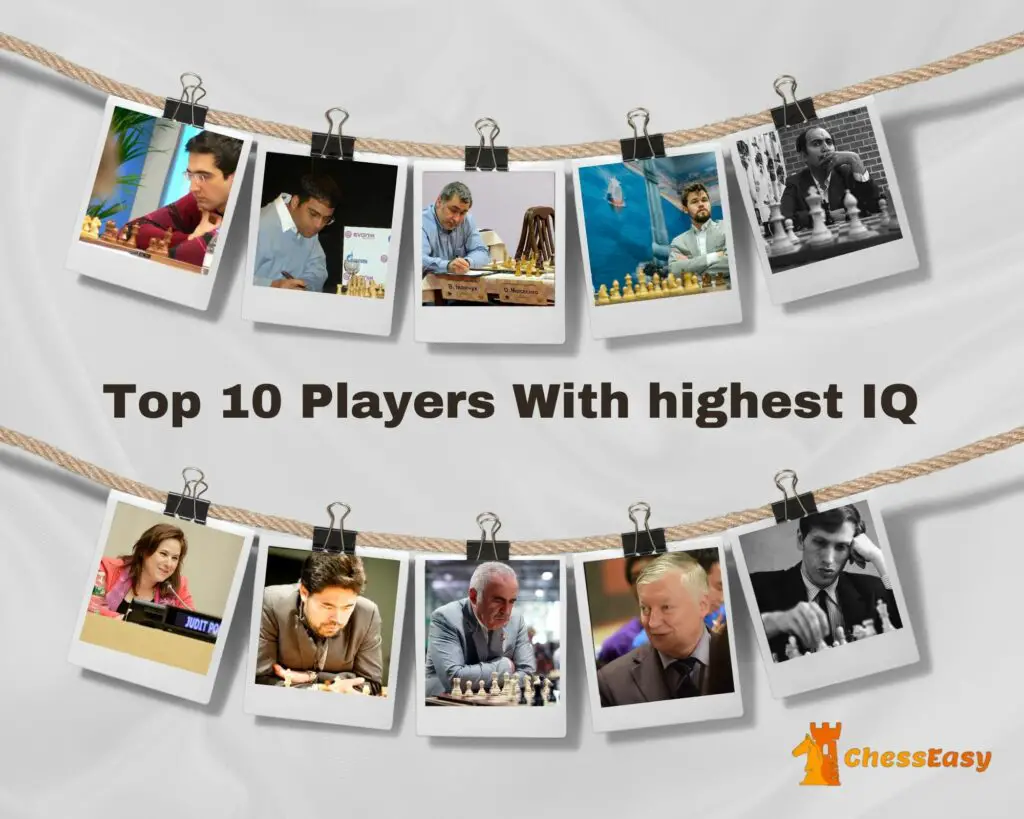
Chess has long been associated with strategic brilliance and intellectual prowess.
Over the years, the chess world has witnessed the rise of grandmasters who not only dominate the chessboard but also possess remarkably high IQs.
Here are the top 10 players with high IQs:
| Player | IQ Score | Peak Rating |
|---|---|---|
| Garry Kasparov | 190-200 | 2851 |
| Magnus Carlsen | 190 | 2882 |
| Bobby Fischer | 180-187 | 2785 |
| Viswanathan Anand | 180-187 | 2817 |
| Mikhail Tal | 170-180 | 2705 |
| Vasyl Ivanchuk | 170-180 | 2787 |
| Judit Polgár | 170 | 2735 |
| Anatoly Karpov | 165-175 | 2780 |
| Vladimir Kramnik | 160-170 | 2817 |
| Wesley So | 150 | 2816 |
Keep reading to learn more about these remarkable players and whether their IQ score has anything to do with their chess skills.
The Correlation Between Chess and IQ
There has been a lot of discussion among researchers and enthusiasts about the correlation between chess and IQ has generated much discussion.
Some research suggests a positive correlation, indicating that individuals with higher IQs may be more inclined to excel in chess. However, this correlation is not strong enough to make sweeping generalizations.
While some grandmasters and top-level players have demonstrated high IQ scores, it’s essential to remember that intelligence comes in various forms, and chess players can excel through a combination of skills, practice, and dedication, regardless of their IQ scores.
The Top 10 Chess Players with High IQs
Now let’s take a look at some of the top chess players who have not only exhibited high IQs but also left an indelible mark on the world of chess with their extraordinary skills, achievements, and contributions to the game.
1. Garry Kasparov

Garry Kasparov’s IQ is estimated to be around 190-200, making him one of the most intellectually gifted chess players in history.
Kasparov was born in 1963 in Azerbaijan and became the youngest-ever World Chess Champion in 1985 at the age of 22. He held the title for 15 years, earning a reputation as one of the greatest chess players of all time.
Kasparov is renowned for his aggressive playing style and deep opening preparation. He was also instrumental in advancing chess theory and strategy.
2. Magnus Carlsen
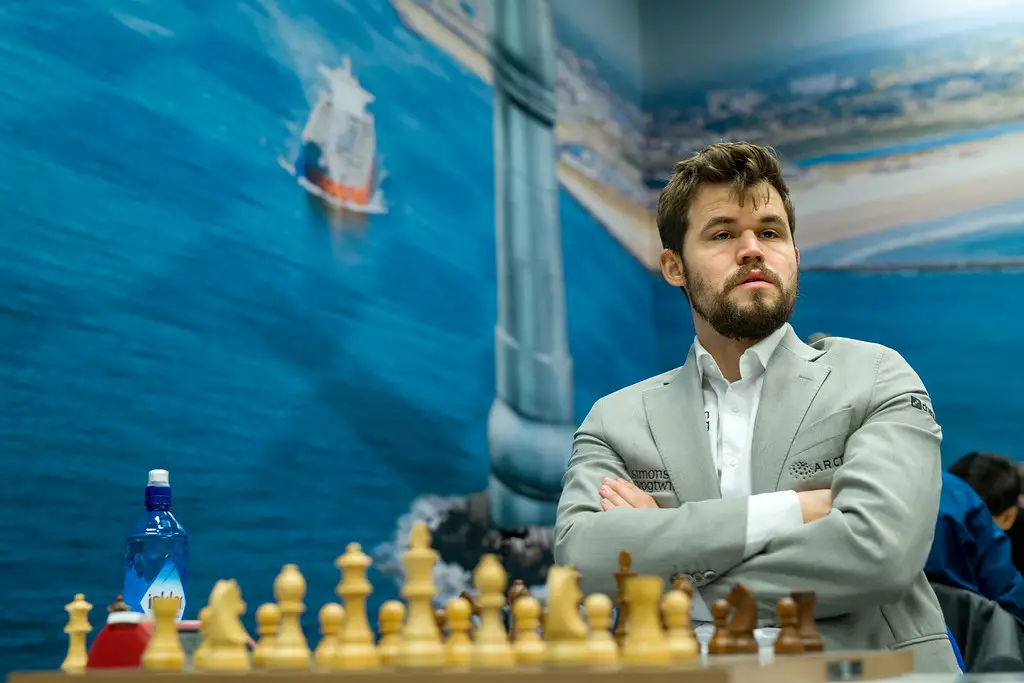
Magnus Carlsen is also estimated to have an exceptionally high IQ score of 190; however, it was not confirmed publicly.
Carlsen achieved Grandmaster status at the age of 13, becoming one of the youngest Grandmasters in history. He became the World Chess Champion in 2013, and he has successfully defended his title multiple times.
His approach to chess is characterized by a deep understanding of positions and endgames. He is also known for his versatility as he excels in a wide range of positions and time controls.
3. Bobby Fischer
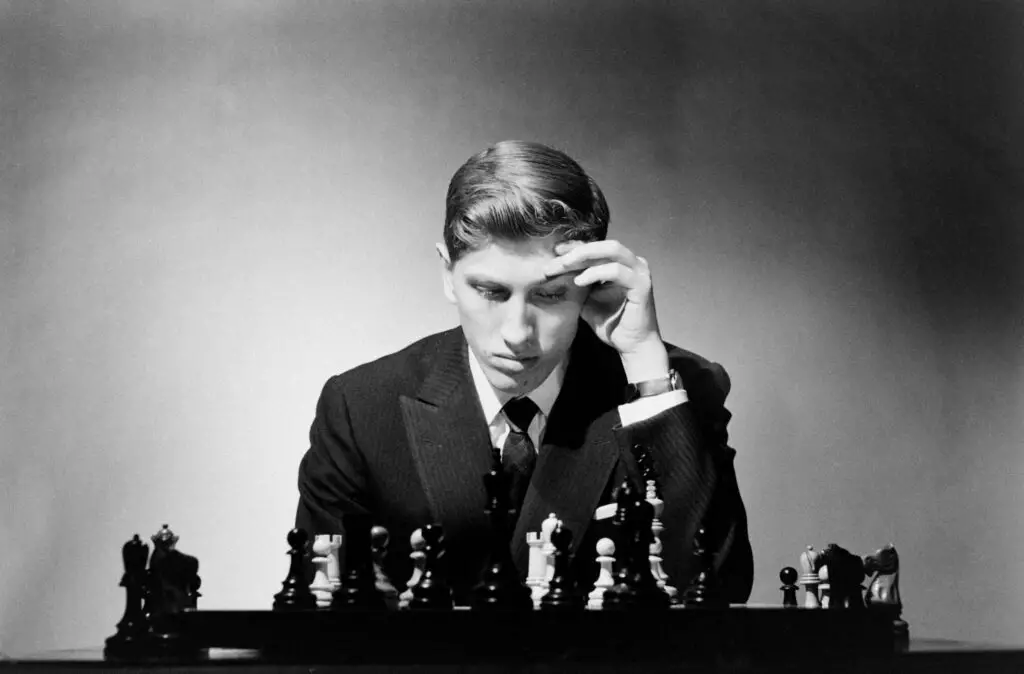
Bobby Fischer’s IQ is reported to be exceptionally high, with estimates ranging from 180 to 187.
Fischer is known for his prodigious talent and uncompromising style.
In 1972, he defeated Boris Spassky to become the World Chess Champion, ending the Soviet Union’s domination of the chess world and becoming a Cold War icon in the process.
Despite his remarkable talent, Fischer’s career was marked by controversies and disputes, which led to his prolonged absence from competitive chess.
4. Viswanathan Anand
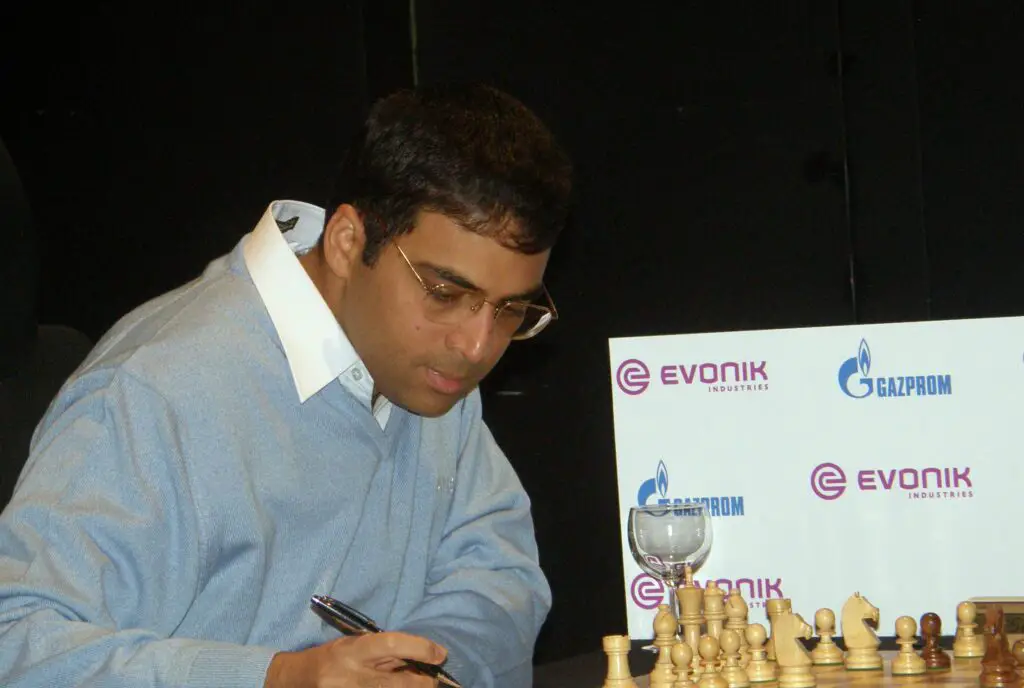
Official IQ scores for Viswanathan Anand are not publicized. However, he is estimated to have an IQ of around 180-187, which has earned him a reputation as one of the most intelligent chess players.
Viswanathan Anand, often referred to as “Vishy,” was born in India in 1969. He became India’s first Grandmaster in 1988 and quickly ascended the ranks of the chess world until he was crowned the World Chess Champion in 2000. He successfully defended his title in several subsequent championship matches.
Anand is also known for his versatility and adaptability, as he is a master of both classical and rapid chess, earning him the moniker “The Lightning Kid” for his speed and precision.
5. Mikhail Tal
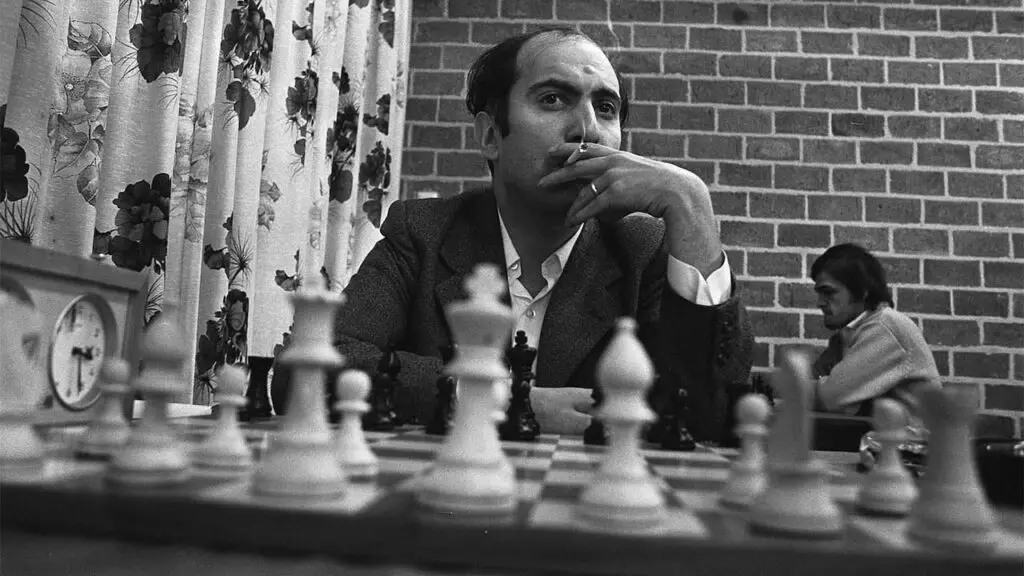
Official IQ scores for Mikhail Tal are not publicized. However, he is estimated to have an IQ of around 170-180
Tal was born in Latvia in 1936 and was one of the most brilliant and daring players in chess history. His aggressive and sacrificial style earned him the nickname “The Magician from Riga .”
.”
He became the youngest World Chess Champion in 1960 at the age of 23 when he defeated Mikhail Botvinnik. His impact on chess extended beyond his world championship reign, as he left a lasting legacy of tactical brilliance and bold sacrifices that continue to inspire players today.
6. Vasyl Ivanchuk
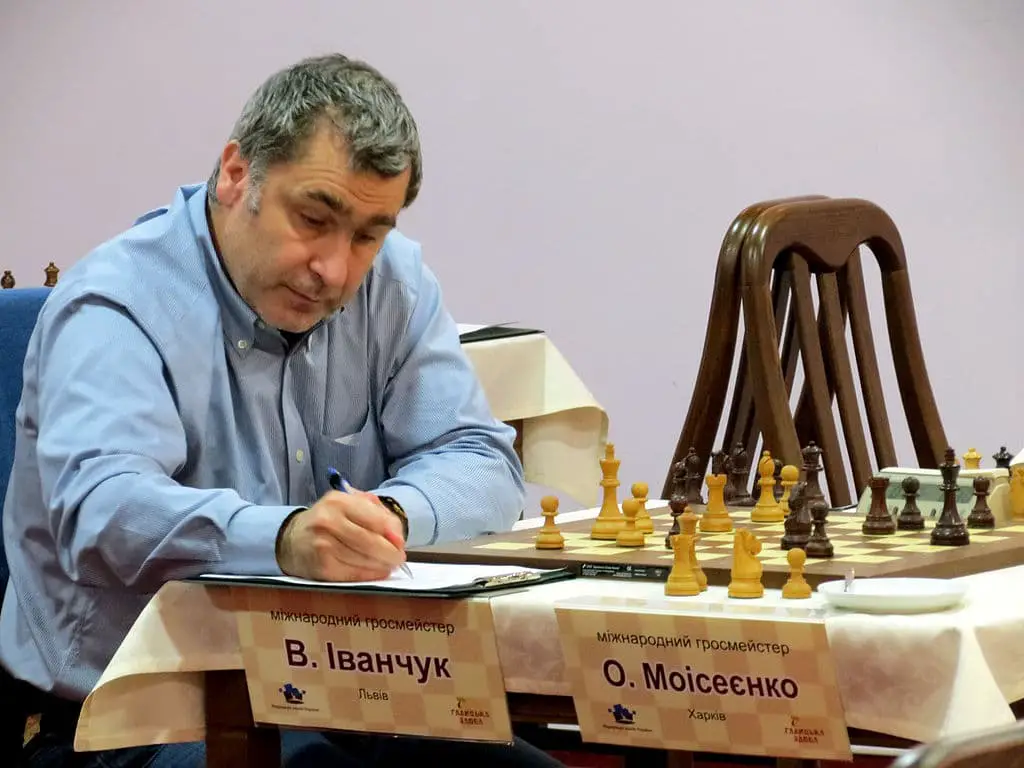
Vasyl Ivanchuk is also estimated to have an IQ score of around 170-180, making him highly regarded for his chess intellect and innovative approach to the game.
Ivanchuk is known for his distinctive playing style, characterized by creative and unorthodox openings. While he has not won a World Chess Championship title, Ivanchuk has consistently been ranked among the world’s top players for several decades and has won numerous major tournaments, including the Chess Olympiad with the Ukrainian national team.
7. Judit Polgár

Judit Polgár has not publicly disclosed her IQ score, but it is estimated to be around 170. She is one of the top female chess players in chess history.
Judit, the youngest of the renowned Polgár sisters, achieved the title of Grandmaster at the age of 15, becoming the youngest Grandmaster in history at that time. She has defeated multiple World Chess Champions, including Anatoly Karpov and Garry Kasparov.
While she did not compete for the official World Chess Championship title, Judit Polgár’s impressive tournament victories and her contributions to chess theory have solidified her status as one of the greatest female players in chess history.
8. Anatoly Karpov
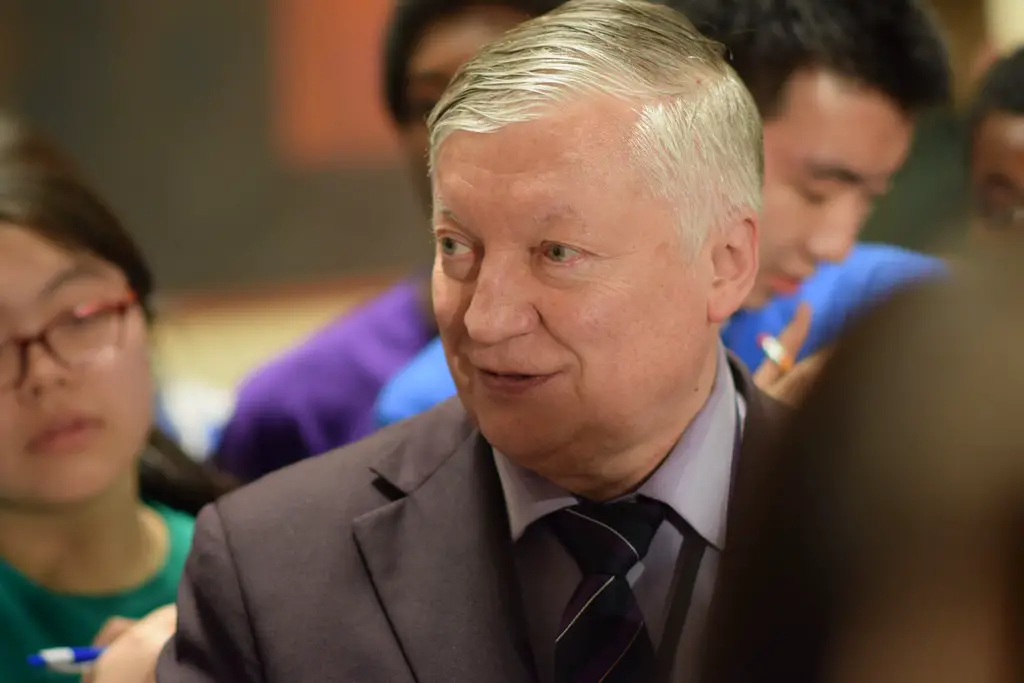
Anatoly Karpov, born in Russia in 1951, was a dominant force in chess during the 1970s and 1980s. He became the World Chess Champion in 1975 and held the title until 1985.
He successfully defended his world championship title against multiple challengers and maintained his status as one of the world’s top players for many years. His style of play was characterized by his exceptional endgame skills and an ability to grind down opponents in long, strategic battles.
9. Vladimir Kramnik
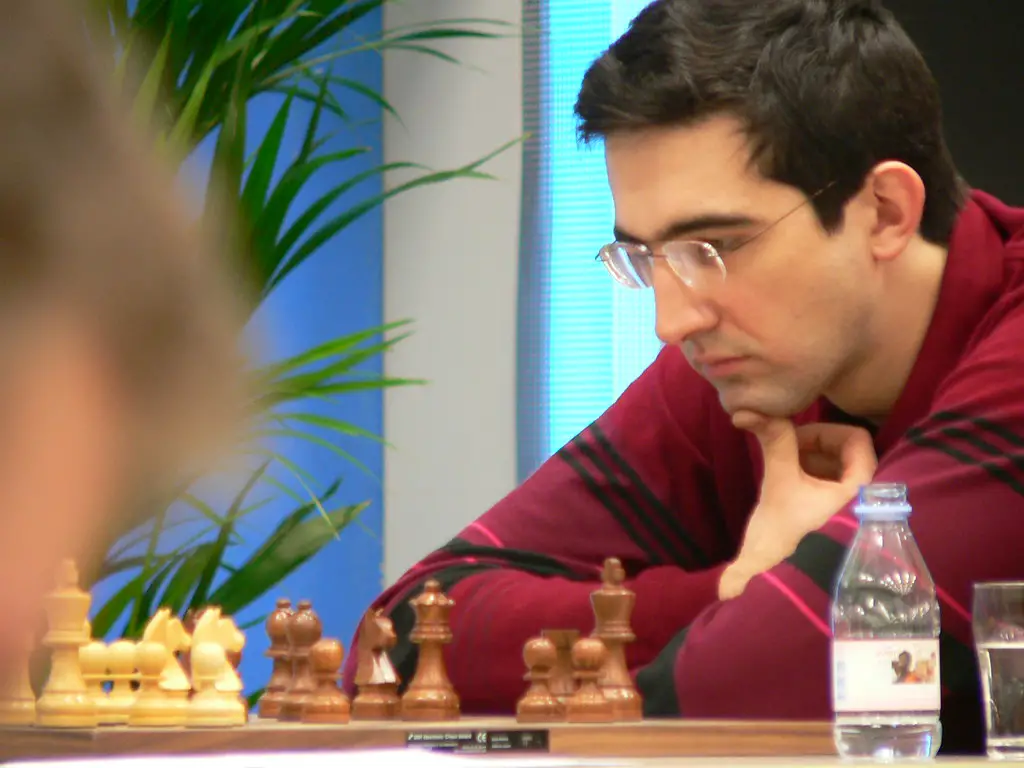
Official IQ scores for Vladimir Kramnik are not widely reported. However, estimates range from 160 to 170.
Kramnik achieved recognition as the World Chess Champion in 2000 when he defeated Garry Kasparov in a historic match, he has consistently been a top-ranked player having won numerous prestigious tournaments.
He is celebrated for his classical style of play and strong preparation in chess openings. His contributions to opening theory and his strategic acumen continue to influence modern chess.
10. Wesley So:
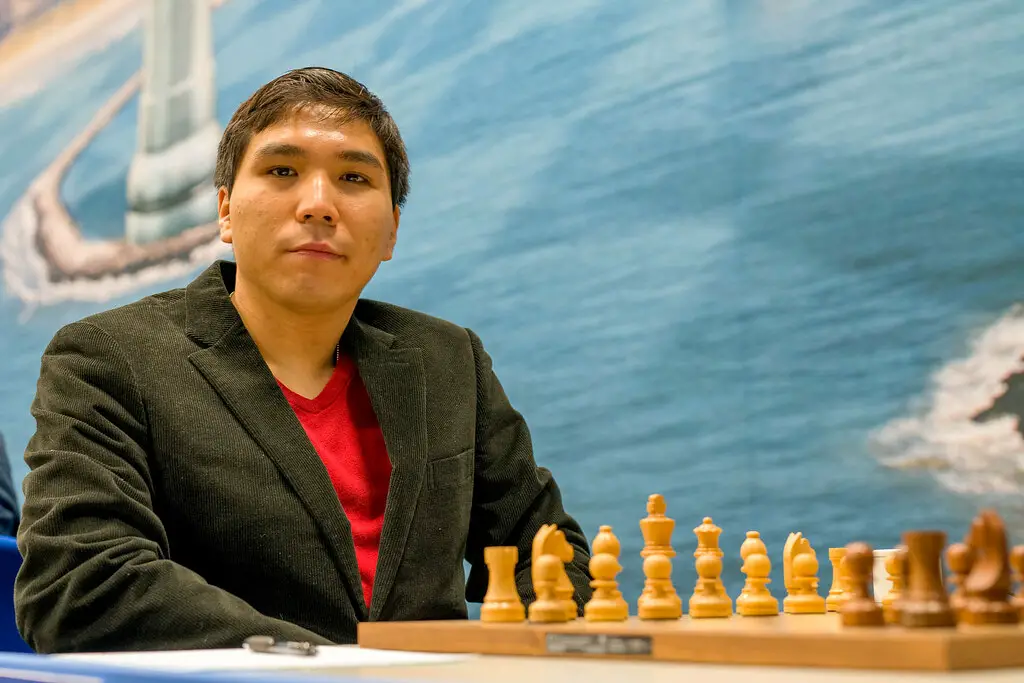
Wesley So’s IQ score is estimated to be 150. While it’s relatively lower than other IQ scores on this list, it’s still considered above average.
Wesley So, a Filipino-American chess grandmaster, has carved his name amongst the best in the world. Born in the Philippines in 1993, So displayed exceptional talent from a young age. He began competing in tournaments by the age of nine and achieved the prestigious title of Grandmaster at just 14, making him one of the youngest ever to do so.
His style of play is characterized by his aggressive and tactical approach, often leading to dynamic and sharp positions on the board. He is also known for his online streaming and educational contributions to the chess community.
As you can see, these are all exceptional chess players, each with their unique strengths and contributions to the game. While their IQ scores may be estimates, their intelligence and chess abilities are evident through their remarkable achievements and enduring impact on the world of chess.
Can IQ Measure Chess Skills?
IQ is a standardized measure used to assess several key aspects of an individual’s cognitive abilities and intellectual potential. However, it cannot directly measure chess skills.
Instead, chess skills are measured primarily through rating systems, as well as by a player’s tournament results, titles earned, and overall achievements in the chess community.
The ELO rating system is the most widely used method for measuring a player’s chess skill. This system assigns a numerical rating to each player based on their performance in rated games. The higher the rating, the stronger the player is considered.
Chess players start with an initial rating and gain or lose points based on the outcome of their games. Beating a higher-rated opponent earns more points than beating a lower-rated one.
Do You Need to Have a High IQ to Play Chess?
You do not need to have a high IQ to play chess. While intelligence can certainly be an advantage in chess, it’s not a strict requirement for enjoying or becoming skilled at the game.
Many factors contribute to success in chess other than intelligence, such as:
- Knowledge: A good understanding of chess principles, strategies, tactics, and openings is crucial. This knowledge can be acquired through study, practice, and experience.
- Practice: Regular practice and playing against a variety of opponents, including those who are stronger than you, can help improve your chess skills.
- Analytical Skills: Chess requires the ability to analyze positions, calculate variations, and plan ahead. This analytical thinking can be developed through practice.
- Pattern Recognition: Recognizing recurring patterns and motifs in chess positions is a key skill. This skill can be honed over time with experience.
- Endgame Knowledge: Understanding endgame principles and techniques is essential for winning games. Endgame knowledge can be learned and improved through study.
- Psychological Factors: Emotional control, patience, and the ability to handle pressure are important in chess, especially in competitive settings.
- Creativity: While logical and analytical thinking is crucial, creative and unconventional ideas can also be effective in chess.
So, while a high IQ can certainly facilitate learning and understanding chess concepts, many players with average or even below-average IQs have achieved significant success in the game through dedication and hard work.
Ultimately, chess is accessible to anyone who is willing to learn and practice. Players can start at any age or skill level and continue to improve their skills over time through dedication and hard work.
Does Chess Increase Your IQ?
Chess is a complex and intellectually demanding game that can have cognitive benefits, but there is no conclusive evidence to suggest that playing chess directly increases your IQ as measured by standardized IQ tests.
As mentioned earlier, IQ is a multifaceted construct that encompasses various cognitive abilities, and it is influenced by a wide range of genetic, environmental, and educational factors.
However, playing chess can have several cognitive and educational benefits, including:
- Problem-Solving Skills: Chess requires players to analyze positions, plan strategies, and make decisions based on limited information. This can enhance critical thinking and problem-solving abilities.
- Memory Improvement: Chess players often memorize openings, patterns, and past games. This can enhance memory and pattern recognition skills.
- Concentration: Chess demands focused attention over extended periods, which can improve concentration and attention span.
- Spatial Awareness: Chess involves visualizing and manipulating pieces on a board, which can enhance spatial reasoning skills.
- Patience and Planning: Chess teaches patience and the importance of long-term planning, as players need to consider future moves and potential consequences.
- Resilience: Chess players learn to cope with losses and setbacks, promoting emotional resilience and sportsmanship.
- Mathematical Skills: While not directly related to IQ, chess involves mathematical concepts such as counting, geometry, and probability.
It’s important to note that these benefits are associated with regular chess practice and engagement. However, the degree to which these benefits transfer to other cognitive tasks or academic performance can vary from individual to individual.
Moreover, it’s essential to recognize that intelligence is a complex trait influenced by genetics, environment and a wide range of experiences. While chess can contribute to cognitive development, it is just one of many activities that can stimulate the mind and promote intellectual growth.
If you enjoy playing chess, it can be a fun and intellectually rewarding pursuit, but it should not be viewed as a guaranteed way to increase your IQ.
Conclusion
Chess has always been a game that attracts brilliant minds, and the top 10 chess players with high IQs are a testament to this connection. These players have not only left an indelible mark on the chess world but have also showcased the power of intellect in mastering this intricate game.
However, while some top-level players may have high IQs, it’s important to remember that chess can be enjoyed by players if all cognitive abilities.

